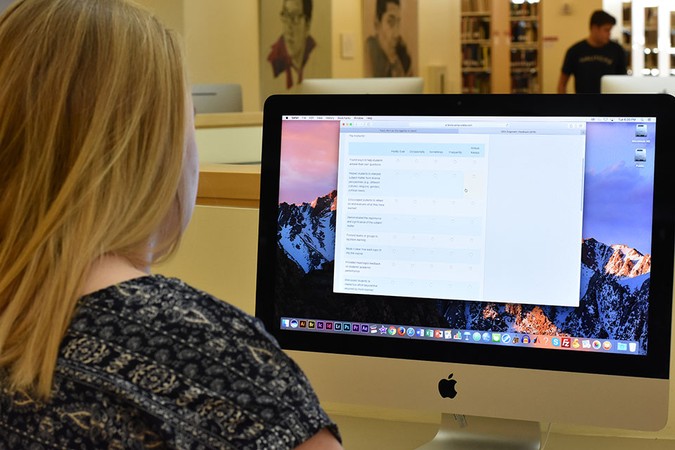Though finals week approaches, students too can provide their professors with feedback in the form of the Individual Development and Educational Assessment.
PRODUCING IDEAS
IDEA evaluations hold great importance for faculty, according to associate provost for faculty advancement Shelly Cunningham. They allow students to provide feedback about their class experience to their professors, who can then compare their effectiveness with that of other departments or universities, allowing them to improve their teaching styles. Deans may also request faculty to submit evaluations when deciding to retain or promote them.
“Sometimes students wonder if what they say matters,” Cunningham said. “It matters a lot. No matter what is done with the results, when someone gives you feedback about what has happened, it means a lot.”
While the deans require the evaluations every other fall semester, individual deans and faculty can administer them other semesters so all students will have the opportunity to provide feedback to their professors multiple times. Many students believe the evaluations remain a helpful platform to express their thoughts.
“I feel like it just helps me get stuff out of my chest if I didn’t agree with the teacher, or if I actually like the teacher I would just say compliments to them that I wouldn’t normally say in front of their face,” said Sabrina Lecap, junior communication sciences and disorders major.
MAKING AN EFFECT
The importance of certain sections of the IDEA evaluation differs according to class, however. Though the criteria remains standard across classes except for university-specific questions regarding diversity and biblical integration, each faculty selects the student ratings which hold the most relevance to their course.
For example, when applied instructional technology administrator Matthew Weathers prepares the IDEA evaluation for his Nature of Mathematics class, he marks some criteria, including those concerning students’ progress in data analysis, as the most important. Others, such as developing teamwork skills, have less importance. Weathers says he also uses the short-answer feedback he receives to make adjustments the following semester.
“It may seem, from the student perspective, to be just a sort of a trivial little thing, and it only takes a few minutes, but we really look forward to getting them and it is important for us to evaluate how to teach the class better next time,” Weathers said.
Cunningham also says that the evaluations can have an emotional impact for some faculty members.
“Even if you do well as an instructor… when those results come back, it can be emotionally challenging,” Cunningham said. “We try to encourage students to provide constructive feedback in the comments, tell faculty members what they’re doing well in addition to how they can improve, and those comments can be really helpful in understanding the numbers. Sometimes those comments can be wounding. I mean, faculty are human.”
As the semester draws to a close and students consider how to respond to the evaluations, or whether to take them at all, senior Christian ministries major Samuel Choe encourages his fellow students to take the evaluation more seriously.
“I believe [the evaluation is] very good, it’s just that the way they present it, it sort of feels forced, so some students don’t really care,” Choe said. “So it’s sort of sad that it does sort of go to waste, that… people don’t really take it seriously.”
The next mandatory campus-wide IDEA evaluation remains scheduled for this fall.








